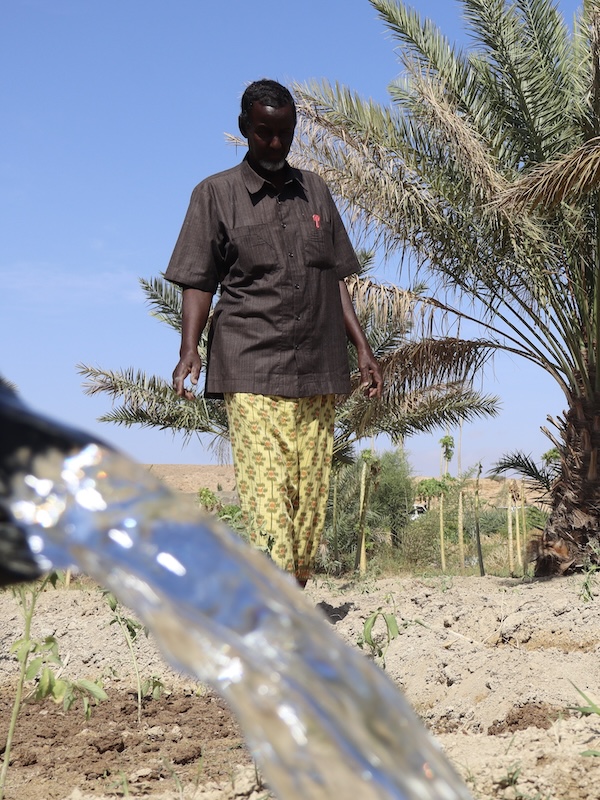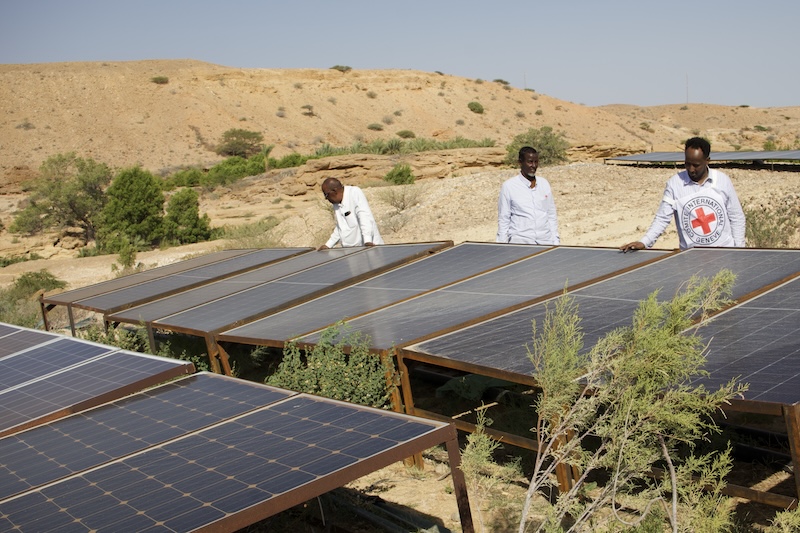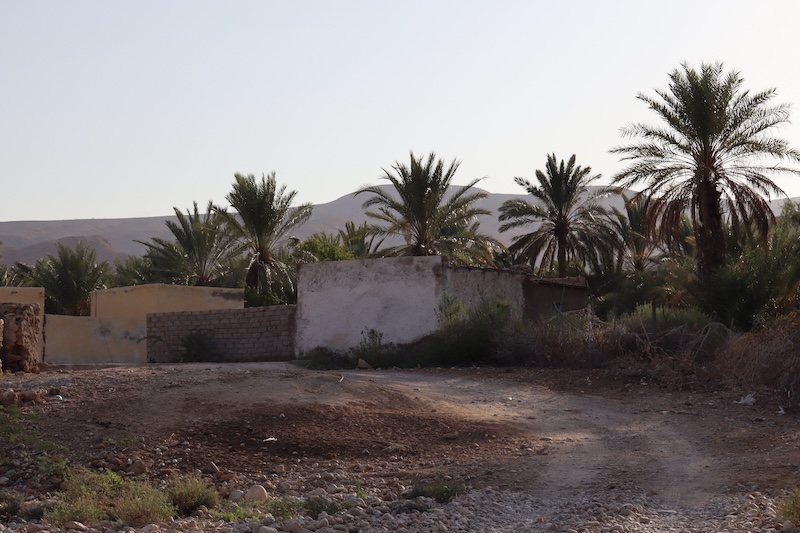In the harsh and unforgiving landscape of Somalia, where droughts, locusts and erratic weather patterns threaten livelihoods, one crop has withstood the test of time: the date palm. Nearly a decade after thousands of date palm seedlings were distributed to cooperatives and farmers, communities continue to depend on this resilient crop.
“The quality of date palms we inherited from our forefathers wasn’t of good quality, with a yield of 20 to 30kg per tree. What we have now is much, much better,” says Mohamud Abdi, a farmer from Karin village, Bari region, on the changes since receiving the seedlings almost a decade ago.
In November 2015, the International Committee of the Red Cross (ICRC) distributed 42,000 date palm seedlings to farming communities in Sanaag, Nugaal, Bari, Mudug and Sool regions. Farmers like Mohamud have seen their yields soar, and their livelihoods transformed.

Mohamud Abdi in his farm where he grows date palm trees. @ICRC/Abdirahman Abdullahi
With relentless conflict, and increasingly frequent climatic disasters – droughts and floods –rural families, dependent on crops and animals have been amongst the hardest hit. Off the back of one of the worst droughts in Somalia’s history, the country was devastated by El-Nino floods towards the end of last year. This year’s Gu (long) rains, occurring from April to June, also caused flooding in parts of Somalia displacing thousands of families. And yet, conflict remains the number one driver of displacement according to Protection & Return Monitoring Network, that tracks movement of populations in the country. These overlapping challenges have pushed farmers to rethink their cultivation practices, creating a shift towards climate-resilient crops and renewable sources of energy – solar powered irrigation – to adapt and endure.
Being an indigenous fruit, dates have proven to be remarkably tolerant to climate shocks like droughts, floods and even locust invasions, which have proven to be all-too-common occurrences in Somalia.
“When the locusts came, they ate everything, except the date palms.” Mohamud recalls,
“They only ate the leaves, but the trees continued to fruit. Lemon trees and other crops were completely destroyed.”
Date farming is also growing in relevance in a country that continues to grapple with food insecurity. According to the Integrated Food Security Phase Classification (IPC), 3.6 million people (19% of the population) are currently experiencing crisis-levels of hunger in the country. A figure that is expected to rise to 4.4 million between now and December, with less-than-average Deyr rainy season predicted.
“It gives us hope to see how these programs have helped the farmers evolve,” says Samer Jarjouhi, Head of Programs & Prevention for the ICRC in Somalia, reflecting on the progress over the past decade.
“Technologies like drought-resistant crops and solar irrigation, have not only improved crop yields, but empower Somali communities to adapt and even thrive, despite the many adversities they face.

Farmers have shifted to solar-powered irrigation to help boost their crop yields. @ICRC/Abdirahman Abdullahi
Abass Omar, a father of 16, in Barookhle farming zone in Bari region echoes these sentiments.
“Palm dates are more valuable than other yields, just as camels are valued more than goats. They are more profitable than other crops, providing higher income,” he notes.
“Sometimes there is nothing to harvest due to diseases, as what happened with sweet watermelons this year. Palm dates can survive for years,” Abass poignantly added.
As the country faces rising food insecurity and unfavorable weather conditions, date palms offer a stable, long-term solution to sustain livelihoods, and generate income for families. The success of this date palm programme offers a blueprint for sustainable, resilient farming practices that can withstand even the harshest of conditions.


